Spring is approaching and we start to think about getting our boats ready for the coming season.
And whilst there are some jobs that are obvious, like servicing engines, repainting, varnishing woodwork, and checking sails, here is our list of 10 jobs that could easily be overlooked but are potentially critical for you to enjoy a safe season ahead.
This list is not exhaustive, but should give you food for thought!
Standing Rigging
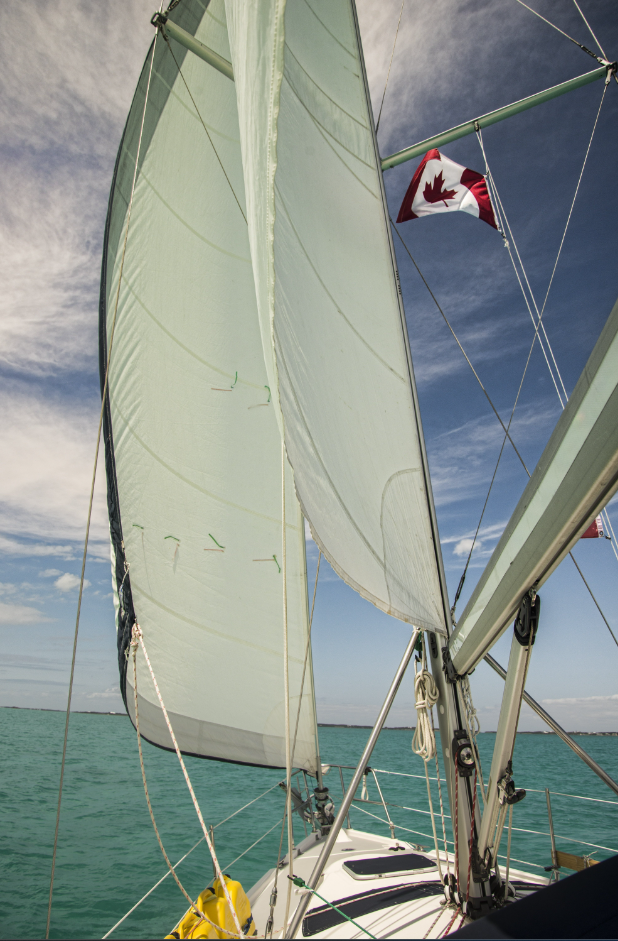
Check every item of your standing rigging, examining any wear and tear to masts, stays and shrouds, paying particular attention to the areas where these join onto the deck and to the masts. Check that Lifelines, stanchions, and pulpits are free from corrosion and properly tensioned.
Recent developments in the yachting world have produced lighter, more robust stays and composite hardware, and it may be worth examining such items to see if they would benefit you and your boat. Take a look at Spars & Rigging
Sheets, Halyards and control lines
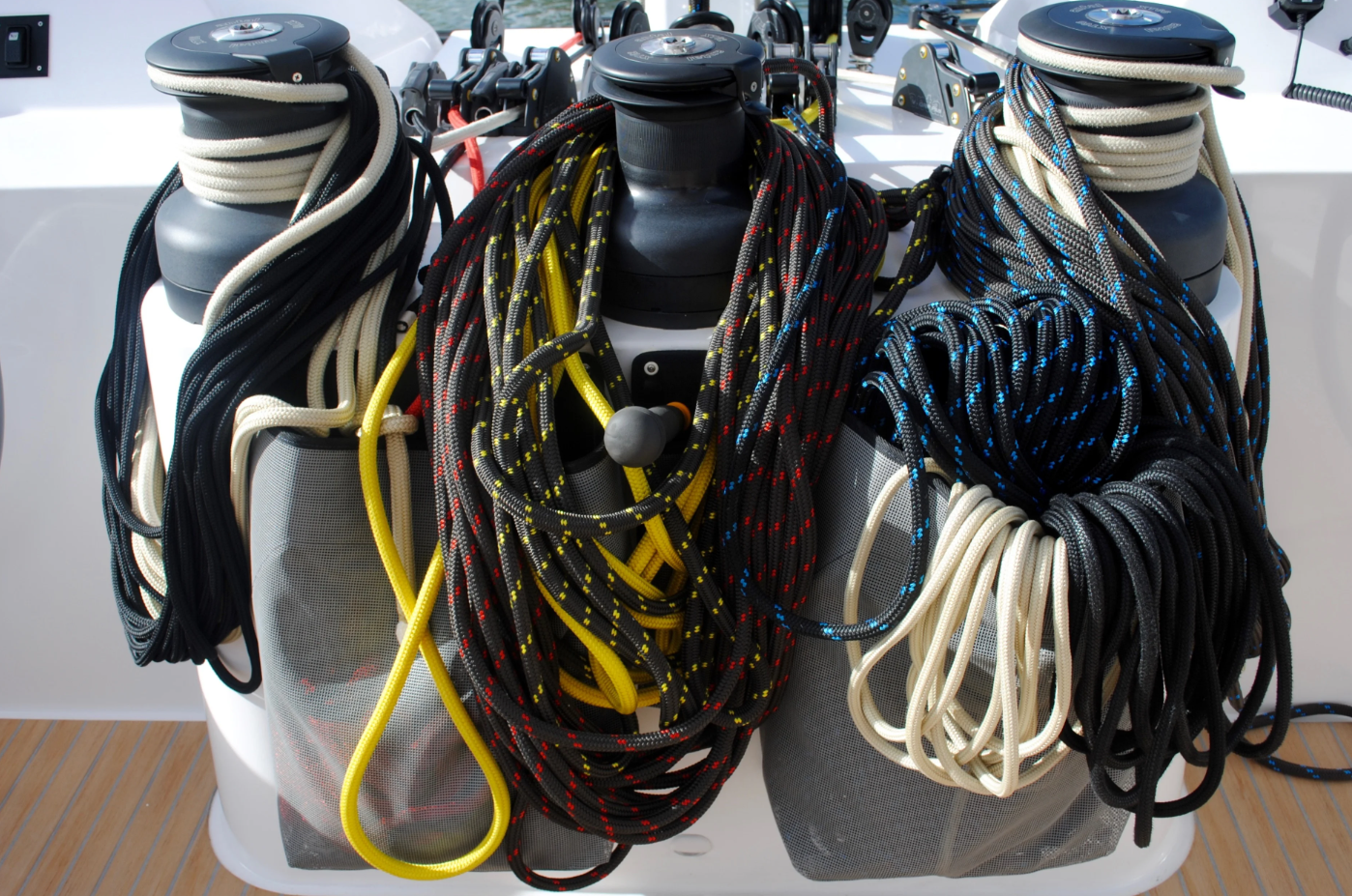
Check for any wear and tear on running rigging, both the hardware on the lines as well as the lines themselves. Check the splices on the end of sheets and wear points around winches.
Particular care should be taken to ensure that the halyards are free from snags and fraying. Key points to check are where they sit in jammers and exit halyard sheaves. Remember these lines are extremely difficult to replace should they fail when you are at sea.
It may also be the right moment to think about whether the halyards on your boat are the best for your boat. Take a look at Halyards
Winches, Clutches & Cleats
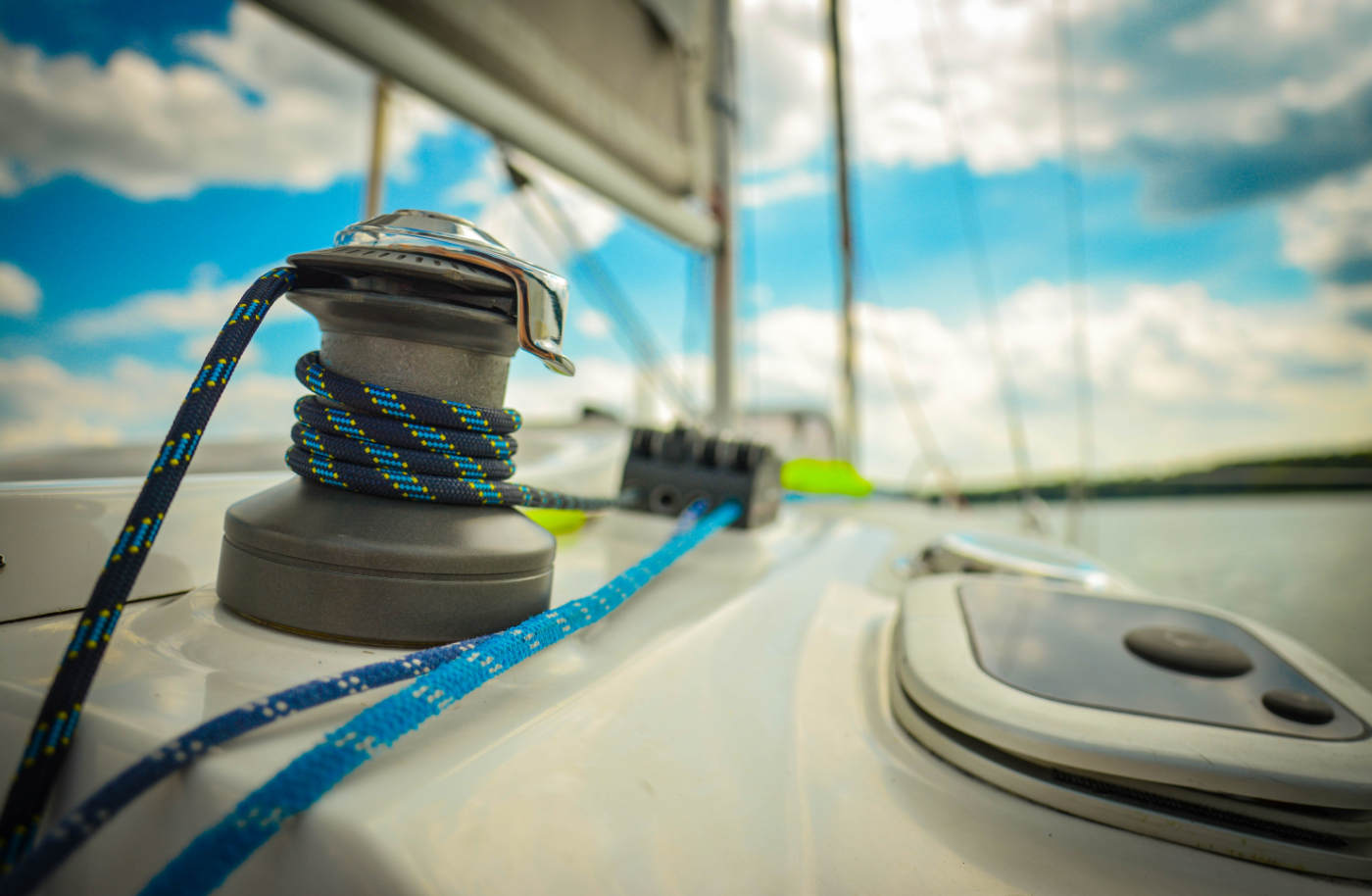
Check that these items work properly, that they operate efficiently, and that they are not corroded. Most can be stripped down relatively easily and service kits are available for all winches. See Service Kits
Spare/replacement cams can be bought for most clutches/jammers which can significantly improve grip on halyards. Apply lubricants and greases as appropriate. View Clutches & Organisers
Mooring equipment
Again, inspect every part of your mooring equipment. Ensuring that you open up and examine your mooring chain and any rode for corrosion or wear. Check the inflation of fenders and ascertain if they have become brittle. Replacing them as necessary. Dirty fenders are normally soiled by grease and oils, which will in time mark the hull of your boat, so consider using sock covers. See Mooring & Anchoring
Electric system and lights
Electrical systems should be checked and you may want to consider upgrading your systems. For example, modern LED navigation lights are far more effective, use less power and last longer. To see what appliances are available and those that have recently hit the market, go to Boat electronics
Safety equipment
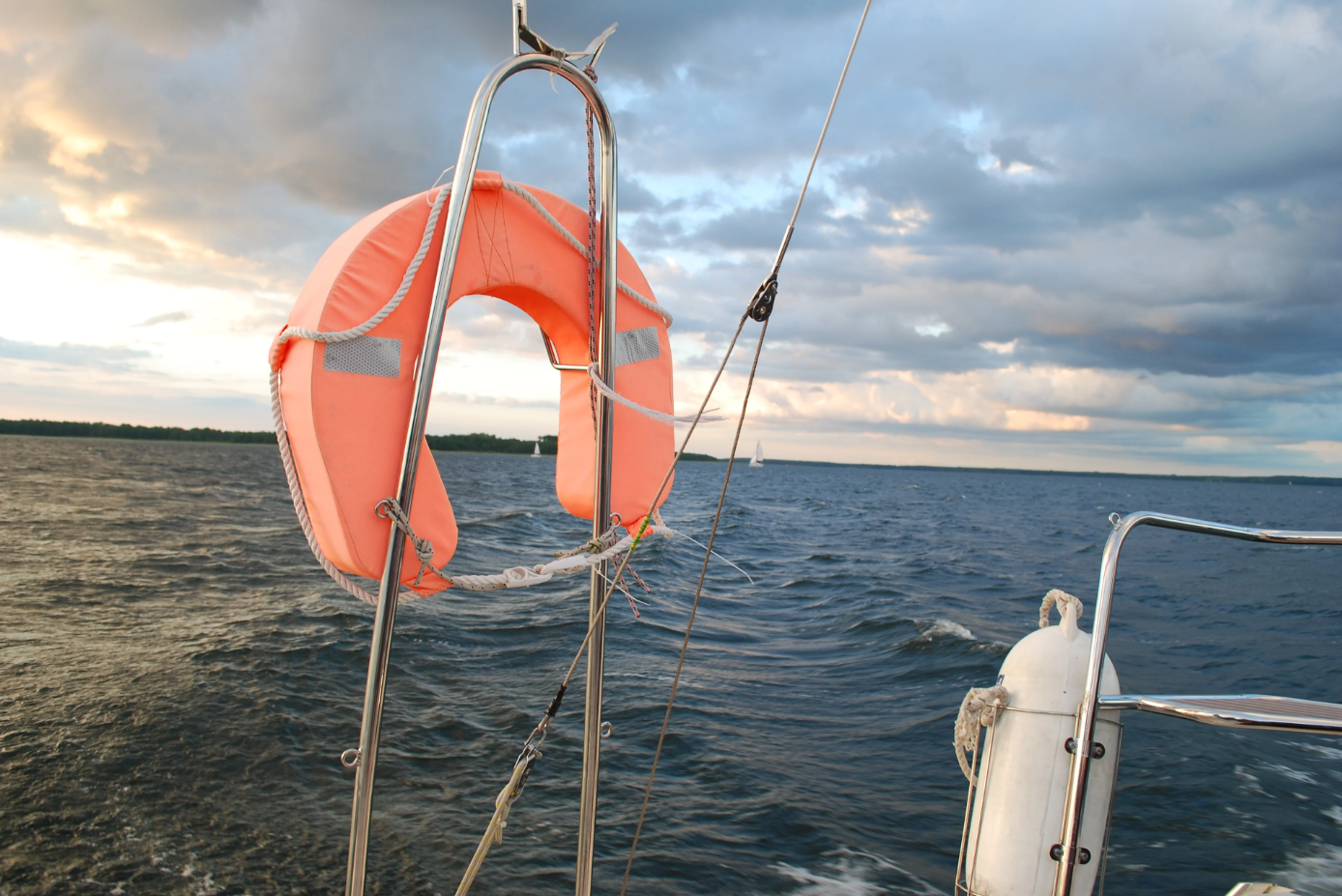
Now is definitely the time to ensure that every piece of safety equipment is ready, available and fit for purpose. Lifejackets should be serviced and stored ready for use by you and your crew. If you have a life raft, it should be serviced and meet your requirements, considering the number of crew and where you will be sailing.
Is your ‘Man Overboard’ equipment fully functional and ready for use? If you have a grab bag, examine its content, replace expired foodstuffs and check batteries and lights are operational. For more information on safety appliances go to Boat safety
Flares
Do these meet the regulations of the countries where you will be travelling to, and are they in date? Remember these pyrotechnic devices deteriorate over time and can become dangerous. Also check their storage, which should be watertight and away from electrical systems and naked flames. Any out-of-date stock should be properly disposed of.
Fire extinguishers and alarms
Fire extinguishers and Fire alarms as well as Carbon Monoxide alarms are, to my mind, essential items on board a boat. Are they working, and appropriately serviced?
Gas Appliances
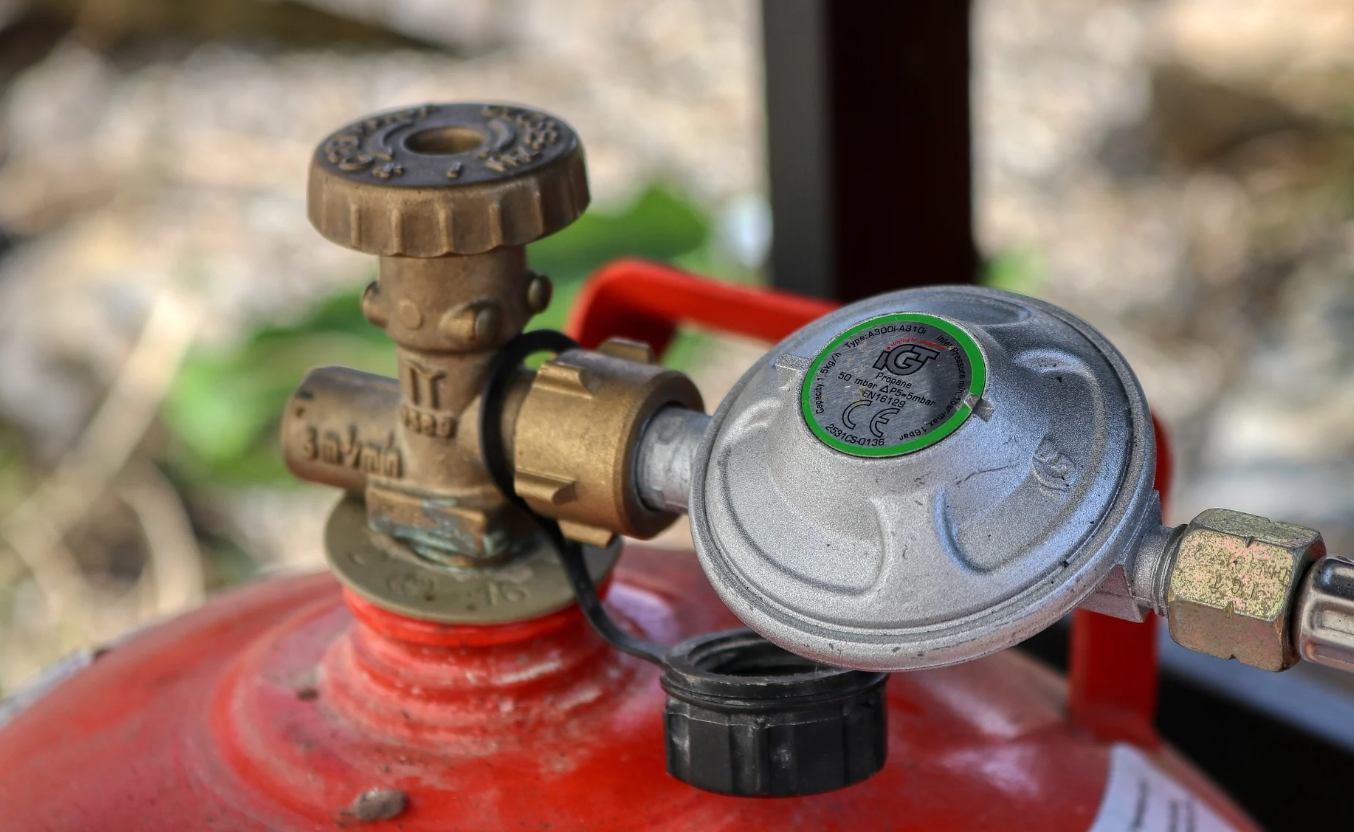
It is very important to check your gas system thoroughly. Is the locker holding the bottle secure and does it allow any leaked LPG to drain effectively from the lowest point of the locker? The hoses should not have perished. They should also be in date (normally five years from the date of manufacture) and the connections should be corrosion free.
Remember LPG is heavier than air and any leakage could cause gas to accumulate in the lowest point of the bilge. A potentially explosive situation.
Hoses & apertures
A thorough check of all the hoses in your boat, whether they carry fuel, water, waste or anything else. You should also check any through-hull apertures, and the appropriate seacocks are working properly.
Critters: The problem with either rodents or birdlife living on your boat is the damage that they can cause. The easiest way to determine if you have any uninvited guests is from their droppings.
Remember, if you use items that are out of date or have not been serviced, there is nothing to confirm that they will work, and you may be in breach of your insurance.
I know this all seems rather a lot of work but ensuring your boat is both and properly set for the coming season could alleviate any later problems.
If you have any questions regarding this article or want expert, impartial advice on any aspect of your boat’s equipment, please feel free to contact us by email, at [email protected] or click the link below to see all products in our shop:


Top Tips on How to Prep Your Boat for Spring